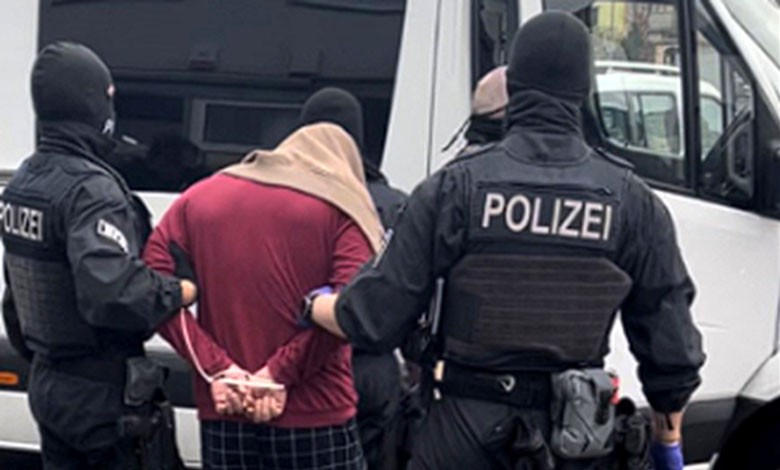Germany intensifies the fight against illegal migration: a large-scale operation has been carried out

A sensation yesterday there was a large-scale international police operation in Germany against a network involved in the illegal transportation of migrants to Great Britain through France. Early in the morning, hundreds of law enforcement officers conducted searches and detentions in the states of North Rhine-Westphalia and Baden-Württemberg.
For years, the organized network transported illegal asylum seekers from the Middle East and East Africa in unreliable rubber boats, exposing them to mortal danger. Contributing to the investigation, not only German, but also French law enforcement officers, together with Europol and Eurojust, joined the exposure of this scheme.
The results were impressive. More than ten European arrest warrants were issued – both for the organizers of the scheme and for the executors. The location of the most active actions was the Ruhr region, where more than half a thousand police officers worked.
As a country of tolerance and humanism, it opposes illegal migration
But this operation is only a separate case in Germany’s broader strategy to combat illegal migration, which involves strengthening border controls. In this context, the Minister of the Interior of Germany, Nancy Feser, approved the decision to introduce temporary control at all land borders of the country. This innovation is aimed at curbing the flow of “uninvited guests” who try to cross the border without a visa.
IA “FACT” already reported that the German government has strengthened border controls not only to combat illegal migration, but also to strengthen internal security in an effort to counter Islamist terrorism and cross-border crime. The measures have drawn criticism from Poland and Austria, which are concerned about a possible increase in the number of asylum seekers on their territories.
Since October last year, when border controls with France, Luxembourg, Belgium, the Netherlands, Denmark, Poland, the Czech Republic, Switzerland and Austria were restored, more than 30,000 illegal “stalkers” were stopped. The measures came in response to heightened tensions following the attack in Solingen, where three people were killed and eight injured in a knife attack on August 23 during the city’s 650th anniversary celebrations. The attack was carried out by a 26-year-old Syrian, suspected of ties to the Islamic State. A terrorist group claimed responsibility for the attack.
The government has also developed an “effective forced return model”, which involves deporting illegal migrants in line with European standards. The details of that plan have not been released at this time, but deportations could already take place within weeks. Persons who evade deportation will be arranged for forced return to their countries of origin through specialized centers.
The change in social policy adds to the categorical nature of the situation. From next year, benefits for refugees will be significantly reduced in a bid to make Germany less attractive to those looking for an easy life, trying to survive on public assistance alone. People who previously received financial support sufficient to cover their basic needs can now count on minimal amounts of benefits. This decision remains debatable, but the government explains its need to reduce the burden on the budget and stimulate the integration of those who really intend to work and not be dependent for life.
Despite the tough measures, Germany does not close its doors to those who really need help. The government has signed agreements on the legal migration of skilled workers from Kenya, Morocco, Nigeria and India. Not only does this create legal avenues for migration, but it also helps Germany alleviate its labor shortage.
The model of forced return of migrants: advantages and disadvantages
Obviously, this model helps the country better control migration. People who entered illegally or were refused asylum can be returned home. This reduces the cost of housing, food and medical care for such people. Let’s say there are 100 people in a refugee center without the right to stay. If they are returned, it is possible to help those who really need asylum, families who fled the war.
Such returns demonstrate that laws work and people respect the rules. If migrants try to cross the border illegally, a clear return policy can prevent this.
But this approach has its drawbacks. And the main one is the risk of violation of human rights. For example, if a person is returned to a country in which hostilities are taking place or there is a threat of persecution, he is exposed to danger. Of course, human rights defenders criticize such actions.
Another problem is the high costs of organizing flights, escorting and processing documents for deportees. Especially if the latter try to return illegally again.
Sometimes the countries to which migrants are returned are not ready to receive them. The government may refuse to issue documents or lack the resources to integrate them. Obviously, for the system to work better, it is necessary not only to ensure safety, but also to create conditions for voluntary return home. For example, offer financial support or employment programs upon return. It is also important to cooperate with other countries so that deportation is fair and humane.
How Germany became a “mecca” for illegal migrants
This phenomenon has deep economic, social, political and geographical reasons. At the heart of Europe, with a rich history of humanitarian aid and a strong economy, Germany has long attracted people from all over the world seeking safety, stability and a better life. But how exactly did the country end up at the center of the global migration flow?
First, one of the key factors is Germany’s economic attractiveness. It is the first economy in Europe and one of the largest economies in the world with a high standard of living and social guarantees. Here, even the lowest paid work often offers better conditions than in the migrants’ countries of origin. Germany has a constant demand for labor in sectors that are not filled by local workers – in construction, agriculture and care for the elderly. Many disadvantaged people, especially from Africa, the Middle East and South Asia, see Germany as an opportunity to realize their dreams of financial stability and a decent life.
Liberal migration policy plays a decisive role. During the migration crisis of 2015, Germany under the leadership of Angela Merkel surprised the world with its “open door” policy, allowing the entry of more than a million refugees. The gesture drew both international recognition and domestic criticism, and created an image of Germany as a country ready to help. Even after the change in political rhetoric, lengthy asylum procedures allow many migrants to remain in the country for years, even if their applications are ultimately rejected.
This is one important factor – social programs for migrants. Germany provides asylum, financial assistance, access to free medicine, housing and educational programs. This creates the conditions under which migrants can adapt to the new environment. In addition, there is a developed network of human rights organizations that help protect the rights of migrants and promote their integration.
Germany is accessible to migrants due to its geographical location. Germany has large diasporas from Turkey, Syria, Afghanistan and other countries. They help newcomers adapt by providing support, information and even housing. These communities create a kind of “underground” networks that help avoid deportation or find illegal work.
Ironically, the complexity of deportation procedures also contributes to migrants staying in Germany. Many countries of origin refuse to take their citizens back, and trials and appeals often drag on for years. In addition, humanitarian considerations often make it impossible for migrants to return home – primarily, the risk of persecution or war in the country of origin.
Germany’s reputation as a country of tolerance and humanism only strengthens this process. In the media and through social networks, the country is often portrayed as a place where everyone can find support and a chance for a better future. For many people in dire straits, this becomes their last hope.
It is obvious that such hospitality of Europe’s first economy has negative consequences. The growth of illegal migration creates social tension, increases xenophobic sentiments and energizes far-right political forces. Germany has to integrate hundreds of thousands of people, many of whom do not speak the language, do not have adequate education or professional skills, and require significant resources to support themselves.
…And now, Germany, like a magnet, attracts illegal migrants, combining economic prospects, developed social programs, favorable geographical location and liberal policy. But this powerful flow, which promises the country new opportunities, at the same time brings complex challenges that require balanced and sometimes unpopular decisions.
Tetyana Viktorova





